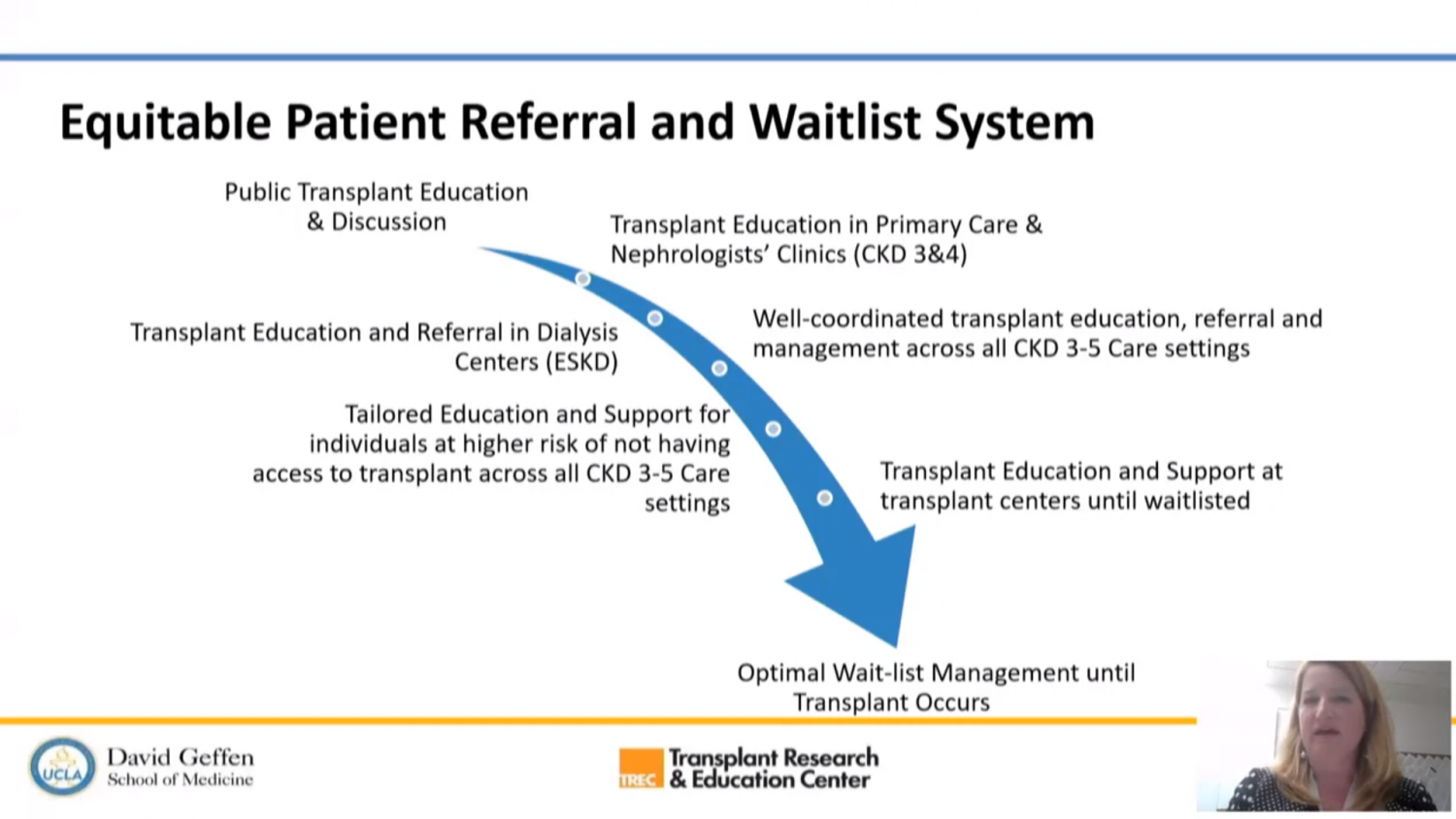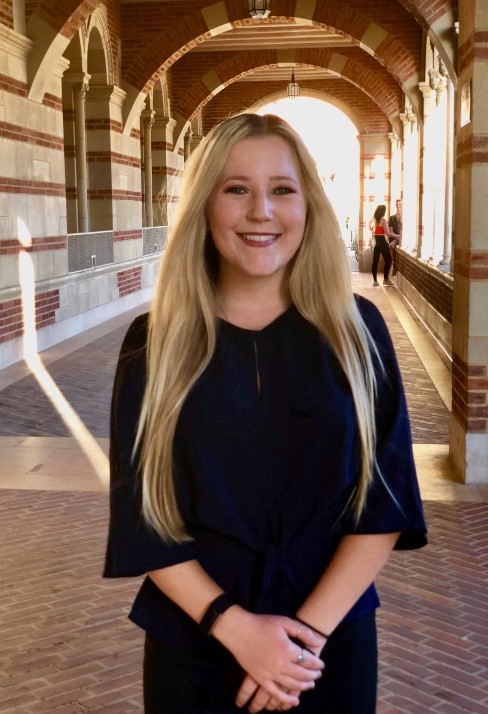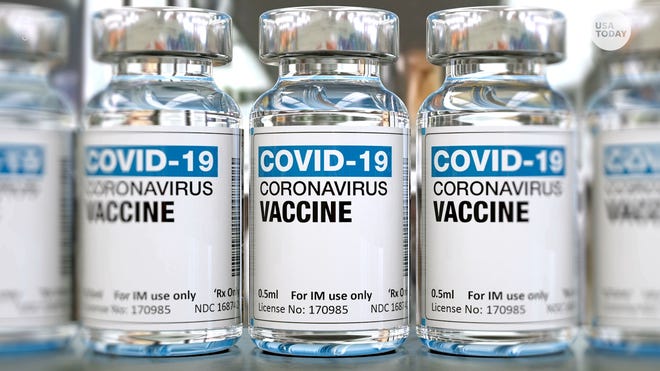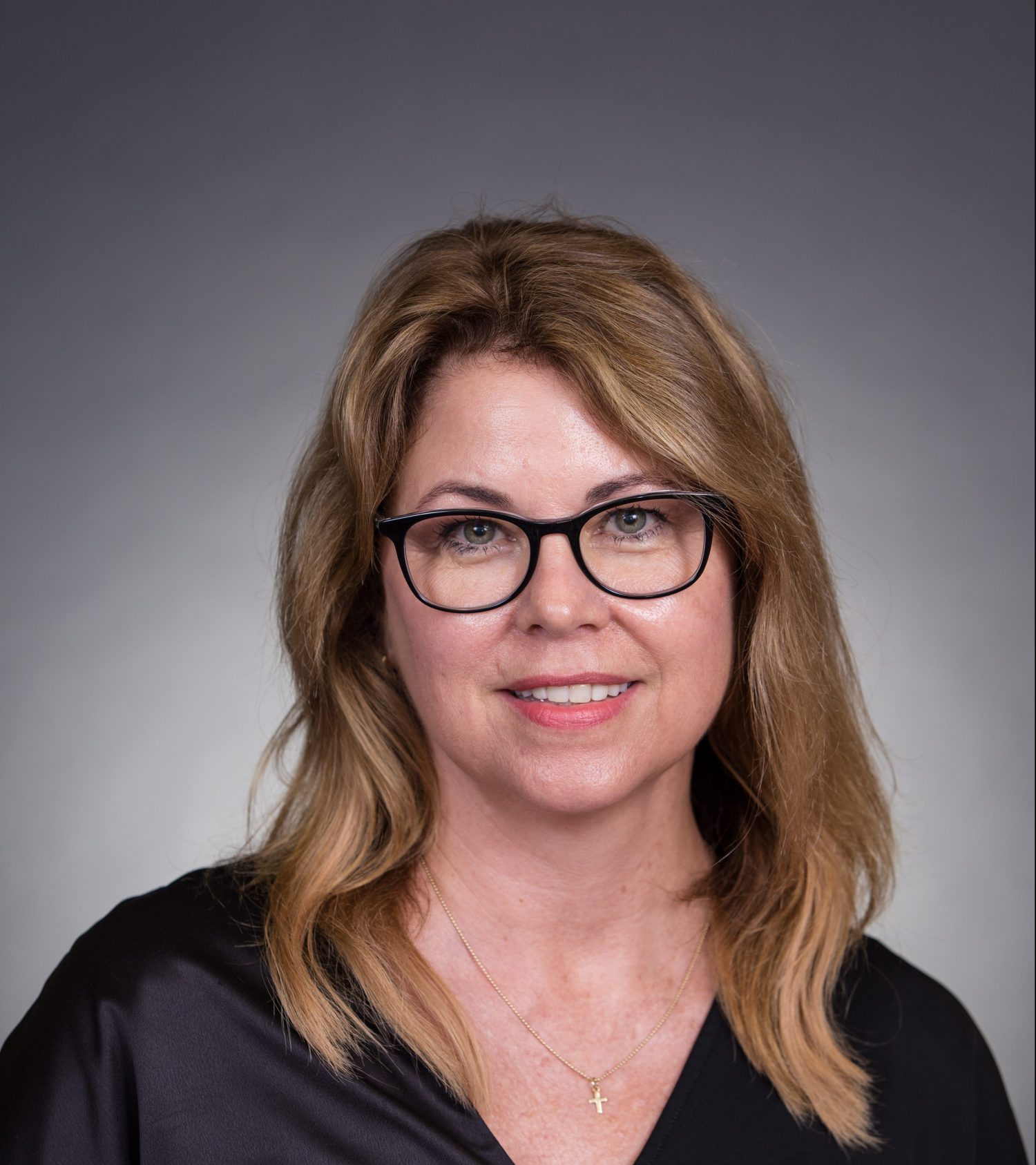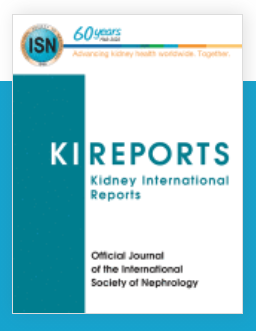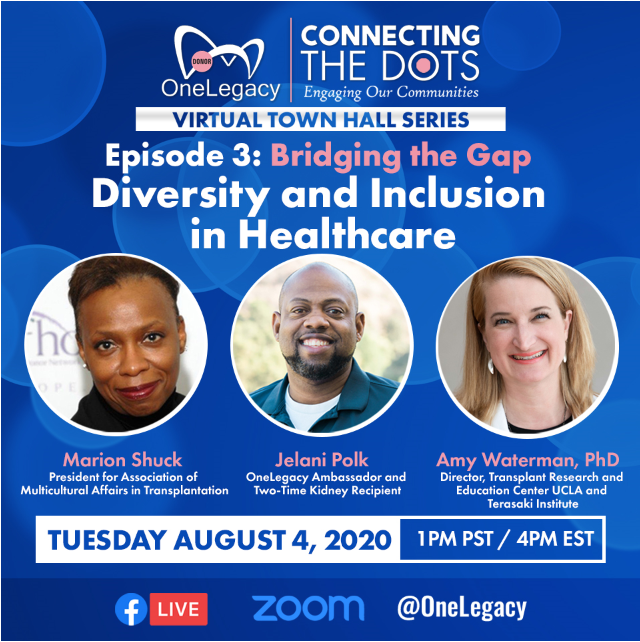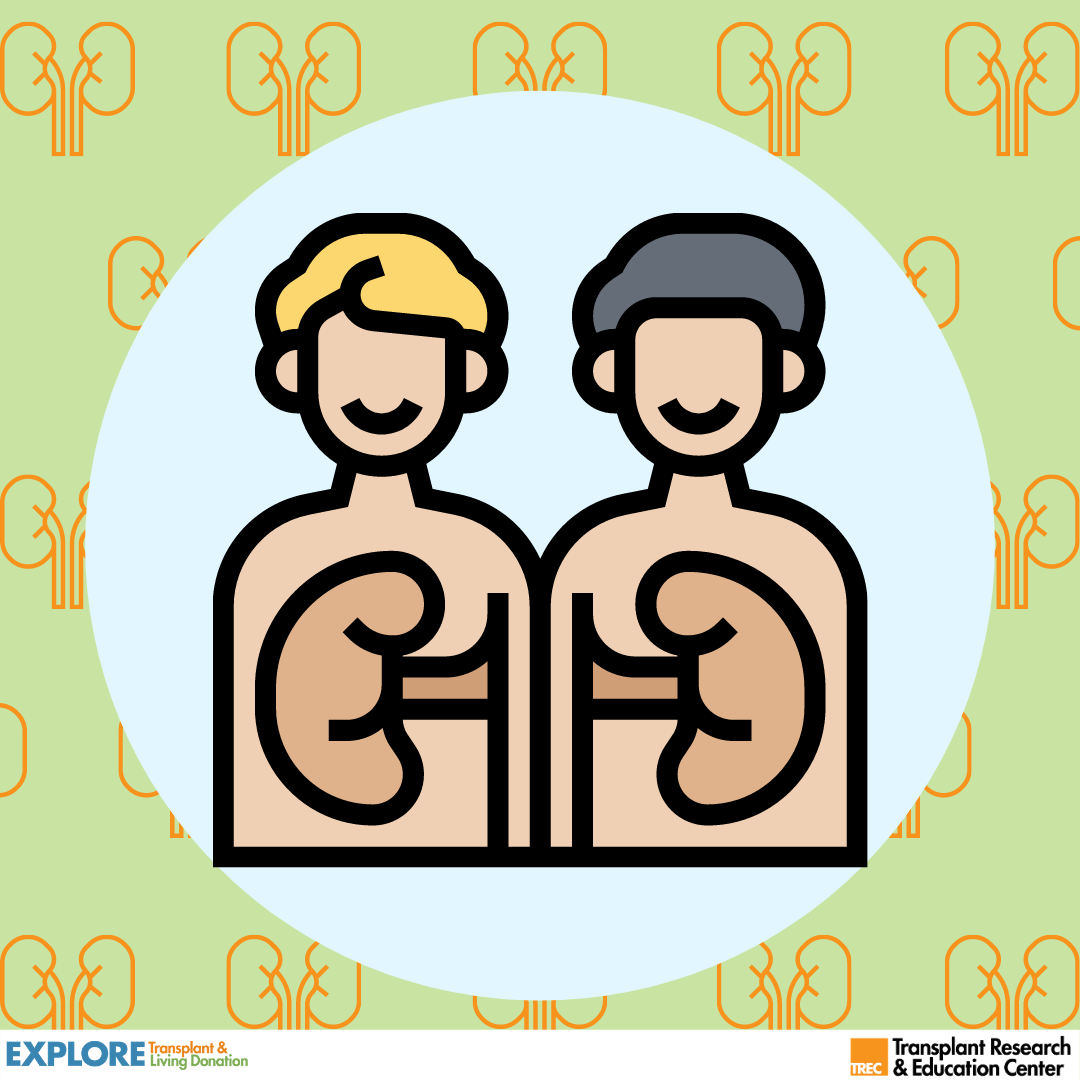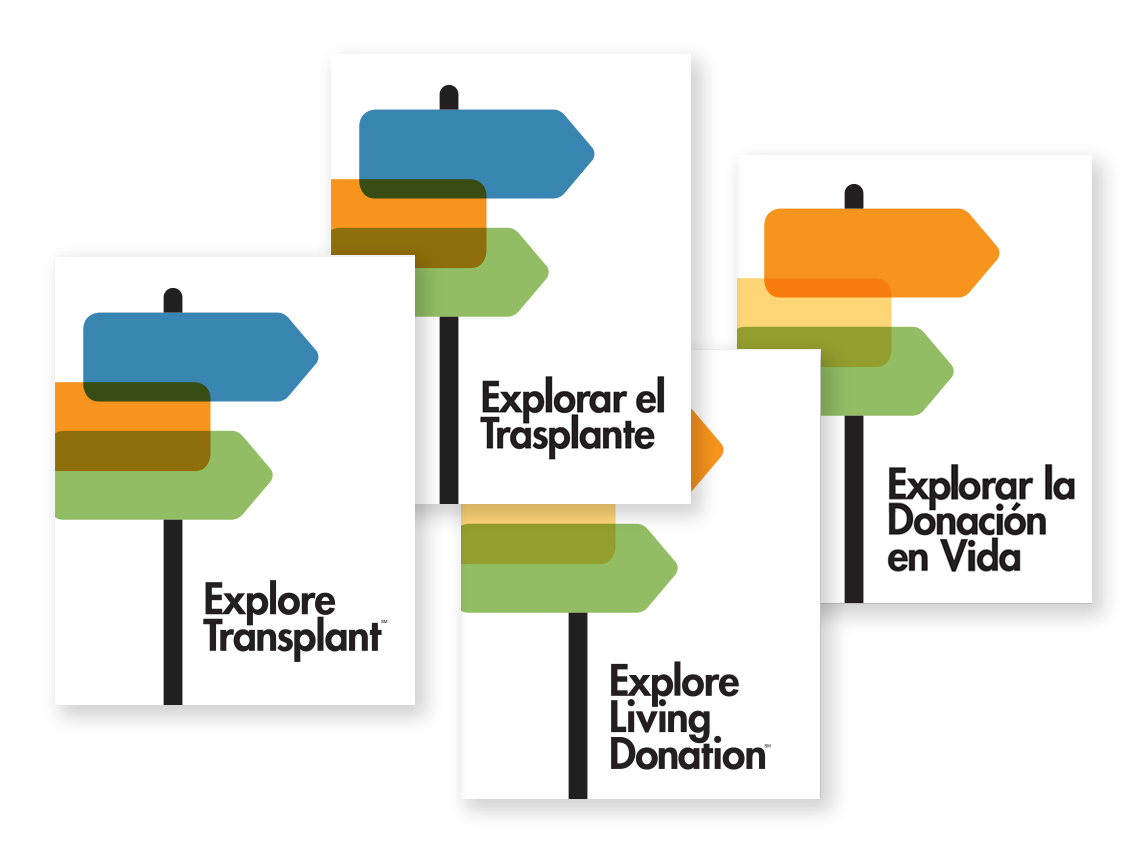Written by Martha Gershun, Guest Blogger No one has ever accused me of being a drug addict. In fact, no one has ever even suggested I drank too much or was impaired in any way due to substance use. I am a pretty reliable, law-abiding, sober person. But in 2017 when I started the process to donate my kidney to a woman I read about in the newspaper, the suspicion of drug abuse almost derailed …
Artificial Intelligence and Machine Learning: How Can it Help Improve Transplant Care?
Are you interested in learning about Artificial Intelligence and Machine Learning: How Can it Help Improve Transplant Care? Click the link below. At the conclusion of this session, participants should be able to: • Identify how to apply artificial intelligence and machine learning to develop risk indices to predict transplant success. • Distinguish characteristics of kidney patients more likely to drop out of transplant evaluation. • List 3 structural and community-level factors that are associated …
A recap of Dr. Waterman’s participation at the National Academies of Science, Engineering, and Medicine’s virtual public webinar
By Erica Ho, Senior Research & Education Associate On Friday April 16, Dr. Amy Waterman spoke at the National Academies of Science, Engineering, and Medicine’s virtual public webinar, “A Fairer and More Equitable, Cost-Effective, and Transparent System of Donor Organ Procurement, Allocation, and Distribution”. This webinar was held to educate the public on two important aspects of the current state of deceased donor organ transplantation in the country. The morning session comprised of medical leaders …
Meet a TREC fellow: An interview with Dr. Cristina Farkas-Skiles
By Yaquelin Arevalo Iraheta, Junior Research Associate At TREC, we have assembled a new group of researchers working in transplantation called the TREC Fellows. This week, we’re learning more about Dr. Cristina Farkas-Skiles, who began having an interest in kidney transplantation when she was in medical school. After graduating from medical school, Dr. Farkas-Skiles decided to specialize in pediatrics. During her residency at UCLA, she explored different specialties and ultimately landed in nephrology. When asked …
The global burden of chronic kidney disease
By Erica Ho, Research Associate Did you know that approximately 13% of the world’s population has chronic kidney disease (CKD), and over 10% have end-stage kidney failure1? In the 1990’s, CKD was the 17th most common cause of death in the world, but has risen to 12th by 20172. This may be because previous efforts to reduce CKD and CKD-related mortality either have not been successful, or do not exist. This is an even more …
2020 year in review: championing patient-centered work
By Brian Ha, Intern With 2020 winding down, let’s take a moment to reflect on all that we have accomplished this year for the transplant and living donation community. Together with our partners, we launched the COVID-19 Kidney / Transplant Listening and Resource Center, designed new education for living donors and transplant recipients in partnership with the community, presented our work on digital storytelling and innovative education tools at talks and conferences hosted by the …
Listening to the transformational experience of kidney patients and living donors
By Ally Zweigle, Intern Throughout my time at TREC, I progressed from knowing very little about what kidney disease is like for those who have it, let alone its astounding effects on both the diagnosed individual as well as those around them, to being convinced that I should someday donate my own kidney to someone in need. Perhaps this was a consequence of one of my internship assignments, which was to code video submissions for …
COVID-19 vaccine FAQs and recommendations for transplant patients
At the Transplant Research and Education Center (TREC), we believe that rapid communication of information about COVID-19 vaccination to transplant patients and ongoing monitoring of patient outcomes are two important ways to keep our patients safe as we move forward into 2021. In the recent weeks, one of the many SARS-COV-2 vaccines being developed in the United States has been approved by the US Food and Drug Administration (FDA) for Emergency Use Authorization. This vaccine …
The importance of tailored health education for patients: an interview with Jill Scherrey
By Kimberly Sanchez, Intern In health care, knowledge is power. A knowledgeable patient is able to make informed decisions about their health and wellness. As the Consumer Education Specialist for the UCLA Health, CENTER for Nursing Excellence, Jill Scherrey, MSN, RN, NPD-BC works to provide patients and healthcare consumers the information they want and need for optimal health. A current PhD candidate at the UCLA, School of Nursing, Jill is a pioneer in patient education …
Important takeaways from the American Association of Kidney Patients annual patient meeting
By Erica Ho, Research and Education Associate On September 11, I attended Day 1 of the American Association of Kidney Patients (AAKP) National Patient Meeting. AAKP is the oldest and largest kidney patient organization in the United States and its mission is to improve the lives of kidney patients through education, advocacy, and community engagement. The National Patient Meeting is an annual event where members of the kidney community can access the latest news and …
Meet a TREC fellow: an Interview with Dr. Ashley Feinsinger
By Erica Ho, Research and Education Associate At TREC, we have assembled a new group of researchers working in transplantation called the TREC Fellows. Over the next few weeks, we will introduce you to each one by summarizing an interview with them conducted by different staff members in the lab. Last time, we learned about Terri Menser and her experience with kidney transplantation research. This week we had the chance to talk to Ashley Feinsinger, …
Policy change to overcome disparities in kidney transplantation
By Alice Yang, Intern Implementing policy changes to improve access to kidney transplants and overcome disparities is an important first step in reaching these goals, but it is not enough. Three major policy changes have aimed at improving end-stage kidney disease outcomes and increasing access to transplants. These include the kidney allocation system (KAS) in 2014, the Advancing American Kidney Health Initiative in 2019, and finally, new changes implemented by the Centers for Medicare and …
Meet a TREC fellow: an interview with Dr. Terri Menser
At TREC, we have assembled a new group of researchers working in transplantation called the TREC Fellows. Over the next few weeks, we will introduce you to each one by summarizing an interview with them conducted by different staff members in the lab. This week, we will learn about Terri Menser and her experience with kidney transplantation research. Interviewer and author: Katia Dahmani, Intern At Houston Methodist, Menser is conducting transplantation research focused on further …
Dr. Amy Waterman’s participation in a OneLegacy virtual town hall
By Erica Ho, Research Associate On Wednesday, August 4, Dr. Amy Waterman was invited to speak at OneLegacy’s monthly Connecting the Dots Virtual Town Hall. OneLegacy is an organization dedicated to helping people navigate organ, eye, and tissue donations by offering coordination and support services. The topic for this discussion, in accordance with National Minority Donor Awareness Month, was improving diversity and inclusion in healthcare to spread awareness about organ donation among minority groups. Dr. …
The importance of tailored education to address transplant disparities
By Annika Pearson, Guest TREC Communication Writer A recent study titled, “Ethnic background is associated with no live kidney donor identified at the time of first transplant assessment—an opportunity missed? A single-center retrospective cohort study”, suggests that people from different minority ethnicity groups are not given the same amount or quality of information about their options for managing chronic kidney disease or for renal replacement therapies like transplantation, as others. Research has shown that patients …
What it is like to be an intern at TREC
By Jessica Nunez, Intern Hello, my name is Jessica Nunez and I am from Santa Clarita, California. I am entering my fourth year at UCLA, majoring in Cognitive Science and Spanish, Community and Culture. I have been interning at Transplant Research and Education Center (TREC) since March 2019. As a freshman, I was overwhelmed with the school dynamic and completed multiple searches in efforts to find a job that encompassed my passions and brought a …
Surveying Spanish-speaking kidney patients
By Yaquelin Arevalo Iraheta, Junior Research Associate. Using an interpreter is worse than having both the patient and provider speak the same language because it loses the personal and intimate element between both parties. Breaking the language barrier that Spanish-speaking patients face when receiving healthcare can also help them overcome cultural barriers such as mistrust of their provider. One of the research projects going on at the Transplant Research and Education Center (TREC) involves surveying …
Announcing the launch of the Listening & Resource Center (KTLRC) & bilingual educational guide
By Emily H. Wood, Research Associate The Transplant Research and Education Center (TREC), has launched the COVID-19 Kidney / Transplant Listening & Resource Center (KTLRC). The KTLRC is a toll-free call center that allows patients, their loved ones, and caregivers to connect with our experienced staff to share their questions, concerns, and receive answers, education, and referrals for additional resources. The KTLRC can be reached at: 1-800-830-0484 trec@mednet.ucla.edu We created the KTLRC in direct response …
Recommendations for making transplant education accessible for patients with CKD stages 3-5
By Grace H. Kim, Research Associate The recent publication, “Recommendations for Systematizing Transplant Education Within a Care Delivery System for Patients with Chronic Kidney Disease Stages 3 to 5”1 by Waterman et al., discusses the findings from a telephone survey of 40 kidney patients, 13 support persons, and 10 providers who were asked about barriers to transplant education and their educational preferences. This review highlights the key barriers identified by chronic kidney disease (CKD) and …
ET @Home improves decision-making for black & low-income patients
By Anne Osuji, Research Associate & Jessica Nunez, Intern Access to Transplant Education is Unequal There are more than 700,000 Americans with kidneys that can no longer support the needs of the body to remove waste and excess fluid; they have End-Stage Kidney Disease (ESKD).1 Patients with ESKD must either receive frequent dialysis or receive a kidney transplant from a deceased or living donor in order to stay alive. Because waiting for a kidney from …
- Page 1 of 2
- 1
- 2



